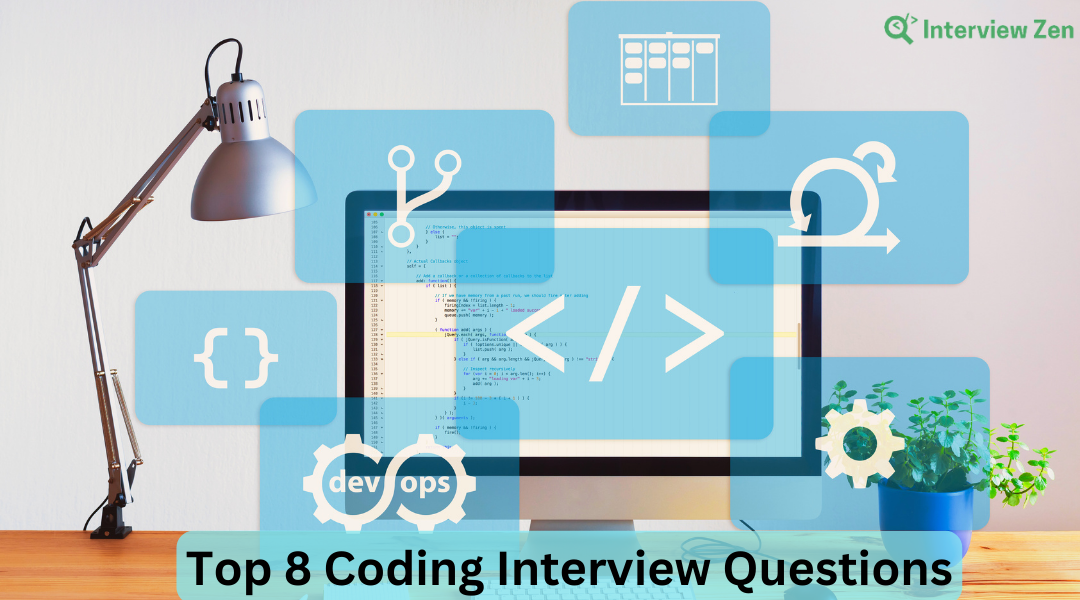Introduction
Hiring the right talent for your software development team is a critical challenge in today’s competitive job market. As a hiring manager, your role is important in shaping the success of your organization by selecting top-notch software engineers. To accomplish this, you need a set of skills that go beyond traditional recruitment expertise.
According to a study by Harvard Business Review, found that effective management significantly impacts team outcomes, turnover rates, and overall job satisfaction. When considering these findings, it becomes clear that the difference between success and failure often rests on the shoulders of a hiring manager.
As the study showed, the significance of effective engineering management truly can’t be overstated. These professionals act as the bridge between technical teams and business stakeholders, demonstrating communication, leadership, strategy, and, not least of all, profound technical understanding.
This blog post is tailored for hiring managers who are tasked with assembling high-performing software engineering teams. Whether you’re a seasoned recruiter or a new manager looking to enhance your skills, this guide is designed to provide valuable insights.
1. Technical Expertise
In hiring management, technical expertise is the foundational skill that is critical for effective leadership in this field. A hiring manager is an engineer with a comprehensive grasp of their domain, technology stack, and the intricate details of their team’s projects. They might not engage in day-to-day coding, but their deep understanding of the technical aspects is indispensable.
This expertise empowers hiring managers to navigate through the complexities of their projects adeptly. They are equipped to assess the viability of proposed solutions, anticipate challenges, and offer concrete support to their team members. Beyond just overseeing, they are a valuable resource, blending their technical know-how with leadership qualities.
For instance, consider a hiring manager overseeing a team tasked with developing a machine learning algorithm. While not directly involved in coding, their knowledge of machine learning principles, relevant programming languages, and potential pitfalls is crucial. When the team encounters a stumbling block, such as the algorithm not performing as anticipated, the hiring manager’s technical understanding can steer the team towards effective solutions, perhaps by suggesting adjustments or pinpointing overlooked aspects in the data.
Specific Skills
- Deep Understanding of Core Technologies: Know the ins and outs of relevant technologies. For example, if you’re hiring for a web development role, you should understand technologies like JavaScript, React, or Node.js.
- Familiarity with Development Methodologies: Understand methodologies like Agile, Scrum, or Kanban, which are essential for project management and team dynamics.
- Awareness of Current and Emerging Trends: Stay informed about trends like AI, machine learning, IoT, or blockchain to foresee future skill requirements.
Development Resources
- Online Learning: Platforms like Coursera, edX, and Pluralsight offer courses that cover a wide range of technical topics, from specific programming languages to broader concepts like software architecture.
- Certifications: Pursuing certifications (e.g., Certified ScrumMaster for Agile methodologies, AWS Certified Solutions Architect for cloud technologies) can provide both knowledge and credibility.
- Professional Networking: Engaging in tech communities, attending webinars, and joining tech meetups can provide insights and connections.
As a hiring manager, actively engage in learning opportunities. Allocate time for online courses, attend industry events, and participate in professional groups. Encourage your team to do the same, and consider setting up a learning budget or time for team members to pursue their technical education.
Technical expertise is about more than just knowing the basics; it’s about continuously updating your knowledge, staying ahead of trends, and applying this expertise to guide your team and make strategic hiring decisions.
2. Communication and Collaboration
The role of a hiring manager extends far beyond technical oversight, encompassing significant interaction and coordination with people. According to Clockwise, the average hiring manager spends approximately 17.9 hours a week in meetings. This statistic underscores the importance of communication and collaboration as essential skills for anyone in this role.
Hiring managers connect different groups: their technical team, other department heads, clients, and company executives. They must adeptly translate complex technical terms into understandable business language and vice versa. For example, they might need to justify the benefits of investing in new technology to the C-suite, explaining how it could provide a competitive edge. Conversely, they are responsible for conveying the business’s goals and strategies to their team, ensuring that the technical work aligns with these objectives.
According to TalentBoard, communication and regular candidate engagement in the pre-onboarding process can improve the onboarding experience itself by 83%.
Specific Communication Skills
- Clear and Concise Communication: Develop the ability to convey complex technical concepts in simple terms. This is especially important when liaising between technical teams and non-technical stakeholders.
- Cultural and Emotional Intelligence: Understand and respect cultural differences and emotional cues, which is important in diverse work environments.
- Feedback Mechanisms: Implement regular feedback sessions with your team to encourage open communication and address any issues promptly.
Fostering Collaboration
- Cross-Functional Understanding: Gain a basic understanding of other departments’ functions. This helps in aligning technical objectives with broader business goals.
- Team Building Activities: Regular team-building exercises can enhance collaboration and improve interpersonal relationships within the team.
- Utilizing Collaboration Tools: Leverage tools like Slack for communication and Trello or Asana for project management to streamline collaboration.
Developing These Skills
- Training and Workshops: Engage in communication and collaboration training programs.
- Mentorship: Seek mentorship or coaching in areas like effective communication and conflict resolution.
- Team Activities: Regular team activities can foster better understanding and collaboration among team members.
Resources for Learning
- Books: “Crucial Conversations” by Kerry Patterson and Joseph Grenny offers insights into effective communication skills.
- Online Platforms: Websites like Coursera and LinkedIn Learning offer courses in communication and teamwork.
Consider a scenario where a critical bug is found in a software application. In this situation, the hiring manager’s role is to clearly communicate the issue, its implications, and the proposed resolution to the client, ensuring transparency and maintaining trust. Simultaneously, they must work closely with their team, delving into the technical details, guiding the resolution process, and ensuring a unified approach to the problem.
In such cases, communicating clearly and collaborating effectively can be the key to quickly resolving the issue, maintaining strong client relationships, and upholding team morale. It highlights how crucial these skills are in bridging the gap between technical challenges and business outcomes, making them indispensable for any hiring manager.
For hiring managers, excelling in communication and collaboration is not just about managing day-to-day interactions; it’s about building a foundation of trust, clarity, and teamwork. These skills are vital in navigating the complexities of technical projects and ensuring that all stakeholders are aligned and working towards common goals.
3. Leadership and People Management
Transitioning from an individual contributor to a managerial role is a significant shift, moving the focus from performing work oneself to guiding others in their tasks. This brings us to a key skill set necessary for every hiring manager: leadership and people management.
Leadership and people management are multi-faceted, encompassing various sub-skills. According to Inc., a proficient hiring manager can set clear objectives and establish attainable goals. They understand how to effectively assign tasks, leveraging the strengths of their team members. Equally important is their ability to offer constructive feedback that nurtures growth and development. Above all, they are skilled in motivating and empowering their team, cultivating a positive and dynamic work environment.
Developing Leadership Skills
- Setting Clear Objectives: Define specific, measurable, achievable, relevant, and time-bound (SMART) goals for your team to ensure everyone understands what is expected.
- Task Delegation: Assign tasks based on individual strengths and development needs, which encourages skill enhancement and team efficiency.
- Providing Constructive Feedback: Regular, honest, and constructive feedback helps team members understand their performance and areas for improvement.
Fostering People Management
- Recognizing Individual Differences: Understand and appreciate each team member’s unique skills and perspectives. This can lead to more effective team dynamics and innovation.
- Conflict Resolution: Develop strategies to manage and resolve conflicts constructively, maintaining team harmony and productivity.
- Motivation Techniques: Use various motivational strategies, such as recognition programs, to inspire and energize your team.
Imagine a cross-functional team tasked with a significant product launch. This team might include software developers, testers, UX/UI designers, and perhaps a few data scientists. Each member brings a distinct skill set and viewpoint to the project.
The hiring manager’s leadership and people management abilities are crucial in such a diverse setting. They are responsible for ensuring that every team member is aligned with the project’s objectives, effectively delegating tasks, and seamlessly integrating the project’s various components. Their role also involves maintaining open communication, resolving conflicts, and keeping the team motivated, even under tight deadlines or unforeseen challenges.
Like a product release, achieving a major milestone requires a deep understanding of people management. The manager must be attuned to what motivates each team member, how they operate most effectively, and how to unlock their full potential. It’s a role transcending mere task management; it’s about leading the people carrying out these tasks.
Leadership and people management skills are about inspiring others to excel. These abilities are essential for any hiring manager, as they lay the groundwork for building a highly efficient and unified team.
4. Strategic Thinking and Problem Solving
A hiring manager’s role extends beyond managing projects and team leadership; it also encompasses the ability to think strategically and solve problems. Hiring managers are not just team captains but also navigators, charting the course toward achieving the organization’s broader goals.
Strategic thinking is about identifying and pursuing long-term objectives aligning with the business goals. This could involve selecting projects that resonate with the company’s strategic priorities or embracing new technologies that position the company for future success.
Specific Aspects of Strategic Thinking
- Vision Setting: Develop the ability to envision and articulate future goals aligning with the organization’s mission.
- Analyzing Trends: Stay informed about industry trends and technological advancements to anticipate future challenges and opportunities.
- Risk Assessment and Management: Learn to evaluate potential risks and devise strategies to mitigate them.
Developing Problem-Solving Skills
- Root Cause Analysis: Acquire skills in identifying the underlying causes of issues rather than just addressing symptoms.
- Creative Solution-Finding: Foster innovative thinking to find unique solutions to complex problems.
- Data-Driven Decision Making: Utilize data and analytics to inform decisions, ensuring they are grounded in facts and evidence.
Resources for Skill Development
- Books and Publications: Titles like “Good to Great” by Jim Collins offers insights into effective strategic thinking in management.
- Online Courses: Platforms like LinkedIn Learning and Harvard Online offer strategic thinking, problem-solving, and data analysis courses.
- Workshops and Seminars: Attend industry-specific seminars or workshops focused on strategic planning and innovative problem-solving techniques.
Consider a hiring manager dealing with scalability issues as their company’s application experiences user growth. This challenge transcends a simple fix; it demands a strategic approach. The manager must delve into the root causes of these scalability issues, weighing various potential solutions.
Their task is to balance the immediate need to manage increased user traffic against the long-term objective of developing a scalable infrastructure supporting future growth. This might involve difficult choices, such as prioritizing code refactoring or investing in more robust infrastructure over short-term feature development, decisions that could have far-reaching positive implications.
In this context, the ability to think strategically and problem-solve is crucial. It ensures that the hiring manager addresses the current challenges and lays the groundwork for the application’s and the company’s sustained growth and success.
Strategic thinking and problem-solving are key in empowering hiring managers to lead their teams and the organization toward a prosperous future. These skills enable them to navigate the complex engineering landscape, making informed decisions that drive the team and the business forward.
5. Adaptability and Continuous Learning
In the fast-paced and ever-evolving world of technology, adaptability, and continuous learning stand out as essential skills for any hiring manager. The tech industry’s landscape is constantly reshaped by rapid technological advancements, making embracing change and continually updating one’s knowledge an indispensable part of a hiring manager’s repertoire.
Specific Aspects of Adaptability
- Embracing Change: Develop an attitude that views change as an opportunity rather than a threat.
- Flexibility in Planning: Learn to adjust plans and strategies in response to new information or changing circumstances.
- Innovative Thinking: Foster a mindset that seeks out innovative solutions and approaches to challenges.
Fostering Continuous Learning
- Staying Informed: Keep up-to-date with the latest industry trends, technologies, and methodologies.
- Encouraging Team Learning: Create opportunities for your team to learn new skills, such as through workshops, webinars, or cross-training.
- Personal Development: Engage in regular self-improvement activities, like reading industry publications or attending relevant courses.
Resources for Skill Development
- Online Learning Platforms: Websites like Udemy, Coursera, and LinkedIn Learning offer various courses on current technologies and management practices.
- Industry Conferences and Seminars: Regular attendance at industry events can provide insights into emerging trends and networking opportunities.
Consider the influence of cutting-edge technologies like AI, blockchain, or quantum computing. An adaptable hiring manager recognizes the potential of these advancements and proactively seeks to understand their implications and explore how they might be integrated into their team’s work or the company’s overall strategy.
Closely linked with adaptability is the principle of continuous learning. The most effective hiring managers are perpetual learners, constantly staying up-to-date with industry trends, emerging technologies, and best practices. They don’t just focus on their personal growth; they foster a learning culture within their teams. This means encouraging team members to acquire new knowledge, share their insights, and constantly enhance their skills.
By promoting a learning environment, a hiring manager cultivates a team that is dynamic, curious, and unafraid to venture into uncharted territories. Such a team is well-equipped to take on new challenges and grow, both in their individual capacities and as a collective unit.
Conclusion
Throughout this article, we have explored five critical skills essential for engineering managers: technical expertise, communication and collaboration, leadership and people management, strategic thinking and problem-solving, and adaptability and continuous learning. Each of these skills plays a vital role in shaping effective engineering managers who can lead their teams to success and align their efforts with the broader objectives of their organizations.
Recognizing and prioritizing these skills during the recruitment process is crucial for hiring managers. It’s not just about finding candidates with the right technical abilities; it’s also about identifying those who possess the soft skills necessary to lead, innovate, and adapt in an ever-changing technological landscape.
Platforms like Interview Zen provide a valuable tool for hiring managers, enabling them to assess these key skills in potential candidates more effectively. By leveraging such platforms, hiring managers can enhance their hiring processes, ensuring they select candidates who are technically proficient and strong in essential managerial competencies.
If you’re a hiring manager looking to refine your approach to recruiting top-tier engineering talent, we invite you to explore what Interview Zen offers. We provide a comprehensive platform that simplifies the technical hiring process, helping you identify candidates with both the technical skills and the managerial understanding necessary for success in today’s dynamic tech landscape.
Try Interview Zen for your next hiring cycle and experience a more streamlined, effective approach to identifying the engineering leaders of tomorrow. With Interview Zen, you’re hiring not just for skills but for the future of your team and your organization.
Don’t miss the opportunity to elevate your hiring practice to the next level. Try Interview Zen for your next round of technical interviews.
Read more articles:




